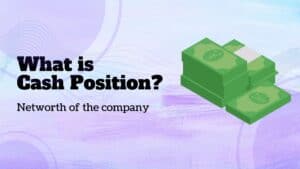
What is the Buyback of shares? What happens after Buyback?
A share repurchase, often known as a buyback, occurs when a corporation purchases its own existing shares in order to reduce the number of shares accessible on the open market.
Read to know about the Stock Market Terminologies. Here we have written all the stuff related to it.

A share repurchase, often known as a buyback, occurs when a corporation purchases its own existing shares in order to reduce the number of shares accessible on the open market.

Bonus shares are additional shares issued to present owners at no additional cost, based on the amount of shares owned. These are the company’s accumulated earnings that are turned into free shares rather than dividends.

When a company declares a stock split, the number of shares issued increases while the market cap remains unchanged.

The percentage of equity accessible to common shareholders divided by the number of existing shares is known as book value per share (BVPS). This statistic shows the minimum value of a company’s equity and gauges a company’s book value per share.

Face Value is the value written on the face of the Share Certificate. If you are beginner in investing, the you should know about the fundamental concept

Voting rights are those which are given to shareholders of the company. Since you are a shareholder you can give out your opinion in the major dis

An adjustable peg is an exchange rate regime in which a country’s exchange rate is fixed in relation to another currency but can change over time.

Adhoc Margin is that margin that the stock exchange collects from participants with excessively large open positions or that is imposed on volatile st

Passive Portfolio Management just replicates a wide market’s performance.Building a portfolio and filling it with the same investments as a wide market index…

Active Portfolio Management is an approach that aims to outperform a portfolio with broad diversification alone by making advantage of the information at…

When one firm purchases the majority of all the shares of another company, it forms a corporate combination known as an acquisition.

Quick ratio is also known as acid test ratio, is a formula used to assess a company’s capacity to make on-time payments by comparing its short-term assets to…

Accrued interest is the interest that has accumulated since the previous interest rate on security. The buyer typically pays the seller for the interest

A cash position is the amount of cash that a business, investment fund, or bank has on its books at any one moment. Cash position indicates financial strength

The price-to-earnings (P/E) ratio is a valuation ratio that compares a company’s current share price to its per-share earnings.

An acquisition may be regarded accretive to the absorbing firm if it results in an increase in earnings per share.

Accounts receivable (AR) are the funds owed to a company for products or services provided or utilised but not yet paid for by consumers.

It refers to a company’s outstanding short-term obligations to its creditors or suppliers. Payables appear as a current liability on a company’s balance sheet.

Account Closure is the closure of a Participant’s Account in response to the Participant’s request to have his or her Account closed and all Stock or profits